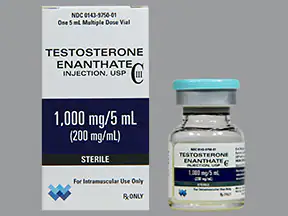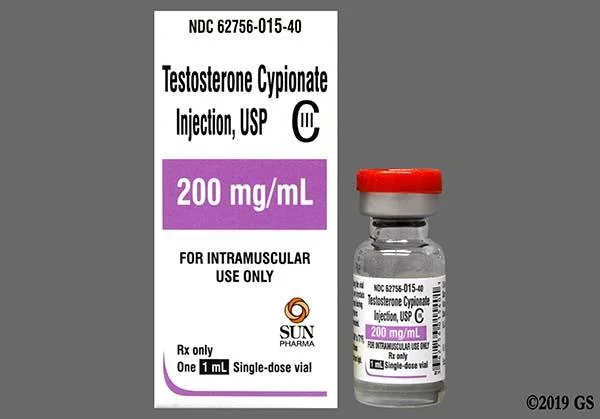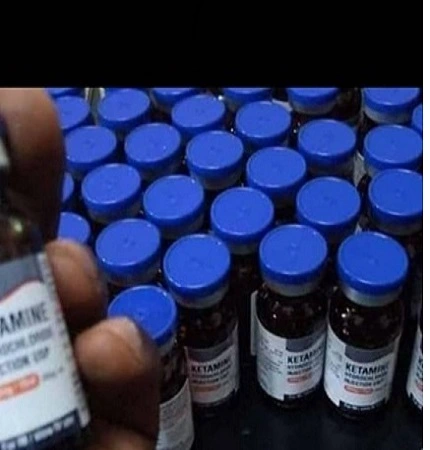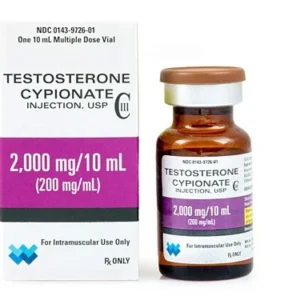STEROIDS SIDE EFFECTS
Steroids side effects. Corticosteroid medicines include cortisone, hydrocortisone and prednisone. They are useful in treating rashes, inflammatory bowel disease, asthma and other conditions. But corticosteroids also carry a risk of side effects. Steroids side effects are enormous both positively and negatively. Steroids side effects shall be examine below.

How do corticosteroids work?
When prescribed in certain doses, corticosteroids help reduce inflammation. This can ease symptoms of inflammatory conditions, such as arthritis, asthma and skin rashes. Corticosteroids also suppress the immune system. This can help control conditions in which the immune system mistakenly attacks its own tissues.

How are corticosteroids used?
Corticosteroid medicines are used to treat rheumatoid arthritis, inflammatory bowel disease (IBD), asthma, allergies and many other conditions. They also are used to prevent organ rejection in transplant recipients. They do that by helping to suppress the immune system. Corticosteroids also treat Addison’s disease. This is a rare disease that occurs when the adrenal glands don’t produce enough of the corticosteroid that the body needs.
Corticosteroids are given in many different ways, depending on the condition being treated:
- By mouth. Tablets, capsules or syrups help treat the inflammation and pain associated with certain chronic conditions, such as rheumatoid arthritis and lupus.
- By inhaler and intranasal spray. These forms help control inflammation associated with asthma and nasal allergies.
- In the form of eye drops. This form helps treat swelling after eye surgery.
- Topically. Creams and ointments can help heal many skin conditions.
- By injection. This form is often used to treat muscle and joint symptoms, such as the pain and inflammation of tendinitis.
What side effects can steroids cause?
Corticosteroids carry a risk of side effects. Some side effects can cause serious health problems. When you know what side effects are possible, you can take steps to control their impact.
Side effects of steroids taken by mouth
Corticosteroids that you take by mouth affect your entire body. For this reason, they are the most likely type of corticosteroid to cause side effects. Side effects depend on the dose of medication you receive and may include:
- A buildup of fluid, causing swelling in your lower legs.
- High blood pressure.
- Problems with mood swings, memory, behavior, and other psychological effects, such as confusion or delirium.
- Upset stomach.
- Weight gain in the belly, face and back of the neck.
When taking corticosteroids by mouth for a longer term, you may experience:
- Problems with the eyes, such as glaucoma or cataracts.
- A round face, which is sometimes called moon face.
- High blood sugar, which can trigger or worsen diabetes.
- Increased risk of infections, especially with common bacterial, viral and fungal microorganisms.
- Bone fractures and thinning bones, called osteoporosis.
- Fatigue, loss of appetite, nausea and muscle weakness.
- Thin skin, bruising and slower wound healing.
steroids Side effects of inhaled
When using a corticosteroid that you breathe in, some of the drug may deposit in your mouth and throat instead of making it to your lungs. This can cause:
- Fungal infection in the mouth, known as oral thrush.
- Hoarseness.
You may be able to avoid mouth and throat irritation if you gargle and rinse your mouth with water after each puff on your corticosteroid inhaler. Be sure not to swallow the rinse water. Some researchers think that inhaled corticosteroid drugs may slow growth rates in children who use them for asthma.
Side effects of topical steroids
Topical corticosteroids can lead to thin skin, skin lesions and acne.
Side effects of injected corticosteroids
Injected corticosteroids can cause temporary side effects near the site of the shot. These side effects include skin thinning, loss of color in the skin and intense pain. This pain is known as post-injection flare. Other symptoms may include facial flushing, insomnia and high blood sugar. Health care providers usually limit corticosteroid injections to three or four a year, depending on each person’s situation.
Reduce your risk of steroids side effects
Just like other drugs, to get the most benefit from corticosteroid medicines with the least amount of risk:
- Ask your health care provider about trying lower doses or intermittent dosing. Newer forms of corticosteroids come in various strengths and lengths of action. Ask your provider about using low-dose, short-term medications or taking oral corticosteroids every other day instead of daily.
- Talk to your provider about switching to nonoral forms of corticosteroids. Inhaled corticosteroids for asthma, for example, reach lung surfaces directly. This reduces the rest of your body’s exposure to them and may lead to fewer side effects.
- Ask your provider if you should take calcium and vitamin D supplements. Long-term corticosteroid therapy may cause thinning bones, called osteoporosis. Talk with your provider about taking calcium and vitamin D supplements to help protect your bones.
- Take care when discontinuing therapy. If you take oral corticosteroids for a long time, your adrenal glands may produce less of their natural steroid hormones. To give your adrenal glands time to recover this function, your provider may reduce your dose gradually. If the dosage is reduced too quickly, your adrenal glands may not have time to recover and you may experience fatigue, body aches and lightheadedness.
- Wear a medical alert bracelet. This or similar identification is recommended if you’ve been using corticosteroids for a long time.
- See your health care provider regularly. If you’re taking long-term corticosteroid therapy, see your provider regularly to check for side effects.
Weigh the risks and benefits of corticosteroids
Corticosteroids may cause a range of side effects. But they also may relieve the inflammation, pain and discomfort of many different diseases and conditions. Talk with your health care provider to help you better understand the risks and benefits of corticosteroids and make informed choices about your health.
Steroid tablets
Steroid tablets, also called corticosteroid tablets, are a type of anti-inflammatory medicine used to treat a range of conditions.
They can be used to treat problems such as allergies, asthma, inflammatory bowel disease, Addison’s disease and arthritis.
Steroid tablets are only available on prescription. Dissolvable and liquid versions are also available.
Common examples include:
How and when to take steroid tablets
Take your medicine as instructed by your doctor. They’ll explain how much to take and how often.
It’s normally best to take steroid tablets with or soon after a meal – usually breakfast – because this can stop them irritating your stomach.
If you miss a dose or take too much of steroids
If you forget a dose, take it as soon as you remember. Then,f it’s almost time for your next dose, skip the one you missed.
Do not take a double dose to make up for a forgotten dose.
If you take more than your prescribed dose of steroid tablets, contact 111 for advice.
Taking too many steroid tablets over a long period can make you more likely to get side effects.
Coming off treatment of steroids
Do not stop taking your medicine without talking to your doctor.
If you’ve been taking steroid tablets for more than a few weeks, you usually need to reduce your dose gradually. Stopping suddenly can cause your adrenal gland, which makes important hormones for the body, to stop working. This is known as adrenal insufficiency.
Symptoms of adrenal insufficiency include:
- feeling extremely tired
- feeling and being sick
- dizziness
- loss of appetite and weight loss
Your original symptoms may also come back suddenly.
Your doctor will be able to provide more advice about how to safely stop taking steroids.
Side effects of steroid tablets
Taking steroid tablets for less than 3 weeks is unlikely to cause any significant long-term side effects. But you may get some side effects if you need to take them for longer, at a high dose or if you need frequent courses.
Side effects of steroid tablets can include:
- indigestion or heartburn
- increased appetite, which could lead to weight gain
- difficulty sleeping (insomnia)
- changes in mood and behaviour, such as feeling irritable or anxious
- an increased risk of infections – especially chickenpox, shingles and measles
- high blood sugar (hyperglycaemia) or diabetes
- weakening of the bones (osteoporosis)
- high blood pressure (hypertension)
- Cushing’s syndrome – which can cause symptoms such as thin skin that bruises easily, a build-up of fat on the neck and shoulders and a puffy, rounded face that may also look red
- eye conditions, such as glaucoma and cataracts
- mental health problems, such as depression or suicidal thoughts; get an urgent GP appointment or call 111 if this happens
Most side effects will pass once treatment stops. Tell your doctor if they bother you.
You can report any suspected side effect on the UK Yellow Card safety scheme website.
Coping with side effects of steroid tablets
The following tips may help reduce the side effects of steroid tablets:
- take your tablets in the morning with breakfast (although some specially coated tablets can be taken without food) – this may help prevent indigestion, heartburn and sleeping difficulties
- eat a healthy, balanced diet and exercise regularly – this may help prevent weight gain and osteoporosis
- avoid close contact with people who are ill; especially people who have measles, chickenpox or shingles – get medical advice as soon as possible if you think you may have been exposed to someone with an infection
- ensure your vaccines are up-to-date – but do not have any “live” vaccines, such as the Zostavax shingles vaccine
Your doctor may reduce your dose or suggest taking your tablets less often (for example, every other day) if you’re having side effects.
They may also sometimes recommend other medicines to take alongside steroids to protect you from some of the side effects, such as medicines to help prevent indigestion or heartburn, or medicines that help strengthen the bones.
You may be given a blue steroid treatment card that explains how you can reduce the risk of side effects. You may also be given a red steroid emergency card.
If you need any medical or dental treatment, show your blue or red steroid card to the doctor, dentist or pharmacist so they know that you’re taking steroid tablets.
Taking steroid tablets with other medicines, food or alcohol
Some medicines interfere with the way steroid tablets work. Tell your doctor if you take any other medicines, including herbal remedies and supplements, before starting steroid tablets.
If you’re already taking steroid tablets, ask your doctor or a pharmacist for advice before taking any other medicines, remedies or supplements.
You can usually drink alcohol while taking steroid tablets, but do not drink too much as this may irritate your stomach.
You can also eat most foods while taking steroid tablets. Do not eat liquorice while taking prednisolone, however, as this can increase the amount of the medicine in your body.
Who can take steroid tablets
Most people can take steroid tablets.
Tell your doctor before starting treatment if you:
- have had an allergic reaction to steroids in the past
- have an infection (including eye infections)
- you have recently had, or are about to have, any vaccinations
- have an open wound that has not healed yet
- are pregnant, breastfeeding or trying for a baby
- have any other conditions, such as diabetes, epilepsy, high blood pressure, or problems with your liver, heart or kidneys
- have a mental health problem, such as depression
Steroid tablets may not be suitable in these cases, although your doctor may recommend them if they think the benefits outweigh any risks.
Steroid tablets are not usually use for children as they can cause growth problems.
How steroid tablets work
Steroids closely copy the effects of hormones normally produce by the adrenal glands, which are 2 small glands found above the kidneys.
When taken in doses higher than the amount your body normally produces, steroids reduce redness and swelling (inflammation). This can help with inflammatory conditions such as asthma and arthritis.
Steroids also reduce the activity of the immune system, the body’s natural defence against illness and infection.
This can help treat autoimmune conditions, such as rheumatoid arthritis or lupus, which are caused by the immune system mistakenly attacking the body.
Steroid tablets are different from the anabolic steroids used illegally by some people to increase their muscle mass.
Cost price of steroids
- testosterone enanthate = $28
- testosterone cypionate = $25
- liquid ketamine ( infusion) = $25
- ketamine tablet = $42
- ketamine nasal spray = $100
- ketamine powder (1mg) = $40
- ketamine powder ( 1kg and above) = $15,000/kg
Conclusion
Testosterone enanthate continues to gather interest as a potential treatment for muscle gain, especially good body structure. That said, research on the benefits of testosterone enanthate remains relatively new. Experts emphasize Trusted Source the need to continue exploring its long-term safety and effectiveness.







admin –
best quality ever. Just tasted it now and package well received
James –
Your stuff is good and will be needing a 24 weeks cycle
JEFTER –
I JUST RECEIVED THE TEST-C. THE QUALITY IS GOOD. SEEING SOME GREAT IMPROVEMENT. NEEDS A 14 WEEKS CYCLE FOR TEST-E, TEST-C AND WINSTROL
Jeovani –
Wow. just got the package and started the dose. Please dont forget my order for next week.